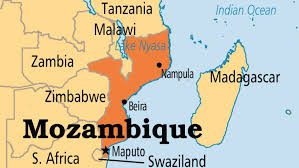The crisis in Mozambique’s northern Cabo Delgado province has morphed into a much bigger security threat and humanitarian catastrophe involving a possible third force and demands a coordinated regional response, Botswana’s foreign minister Lemogang Kwape said on Wednesday.
Speaking during the official opening of an extraordinary summit of the Southern African Development Community (SADC) Ministerial Committee of the Organ (MCO) in Maputo, Kwape said the atrocities and indiscriminate attacks on innocent civilians in Cabo Delgado’s Palma town “has no doubt reached intolerable levels and cannot be allowed to continue in our backyard.”
“It is also clear that the terrorists are becoming more sophisticated as the attacks seemed well-coordinated in different parts of the town, with the use of modern weaponry, such as automatic machine guns, compared to machetes when they started the attacks in October 2017,” Kwape said.
He added: “This definitely means that we are now dealing with a much bigger creature, with strong funding and supply base, including well-established logistical support.”
Kwape, who is chairperson of the MCO, spoke ahead of Thursday’s extraordinary summit of the SADC Double Troika scheduled for Maputo to discuss the deteriorating security situation in northern Mozambique where Islamic State-linked militants have wrecked havoc in the past few weeks, overrunning Palma and killing dozens of people in the coastal town.
Aid agencies estimate that more than 10,000 people have fled from the town since the attacks commenced on March 24 and have sought refugee in the provincial capital Pemba.
The extraordinary SADC summit is being attended by the leaders of Botswana, Malawi, Mozambique, South Africa, Tanzania and Zimbabwe.
Kwape said the attacks on Palma and other parts of Cabo Delgado “are an affront to peace and security, not only in Mozambique, but also in the region and the international community as a whole.”
“It therefore calls for an urgent and coordinated regional response to address this new threat to our common security before it spills over to the entire region.”
JN/APA


